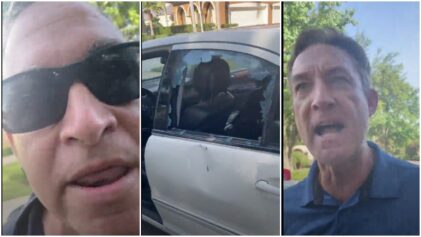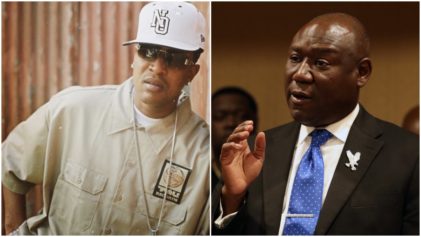Former police officer Howard Morgan, who was shot 28 times—21 times in the back—by Chicago cops and then sentenced to 40 years in prison, was released after being granted clemency by outgoing Illinois Gov. Pat Quinn.
But Morgan seems more angry than relieved to be free.
Morgan, 63, survived the barrage of bullets—21 in his back, seven to his body—and was eventually found guilty of attempted murder, although he claims he never fired a shot at police who stopped him for a traffic violation.
“Right now I’m just concentrating on clearing my name,” Morgan told MSNBC, “because I’m absolutely innocent of those charges.”
Morgan is fighting to have his conviction reversed and has hired a team of lawyers, including Benjamin Crump.
His representatives say key evidence was suppressed at second trial, and made the case double jeopardy. Morgan’s supporters—his wife, Rosalind Morgan collected more than 100,000 signatures backing his release—have said his case is another example of the excessive force police have used when confronting Black males like Trayvon Martin, Michael Brown and Eric Garner.
Morgan, a former Chicago police officer who was working as a railroad detective, was arrested in 2005 following a traffic violation for driving the wrong way on a one-way street near his home, according to the police report.
Morgan was surrounded by four officers after a scuffle. As a detective, he was authorized to carry a gun. But when the officers noticed it, they opened fire. Police claimed Morgan was belligerent and fired the first shot; Morgan said he did not fire a single shot and police started blasting as soon as they saw his weapon.
At the 2007 trial, Morgan was found not guilty of discharging his firearm, as evidence indicated his weapon was not fired, as he insisted. But there was no verdict on a charge of attempted murder. At a second trial in 2012, a jury convicted Morgan of the attempted murder and he was sentenced to 40 years in prison.
“He was no criminal when I married him, and he’s no criminal now,” said Rosalind Morgan, who led the fight for his freedom.
Police union leaders are not happy with Quinn’s decision to commute Morgan’s sentence. But Crump told MSNBC: “What Governor Quinn did was not secretive or mysterious in any way. It’s what the constitution of this state gives him the power to do.
“There were thousands and thousands of people who signed the petition after they looked on the record as to what took place,” Crump added. “What I really believe this is is an example of driving while Black. And we don’t need to go much further than that.


